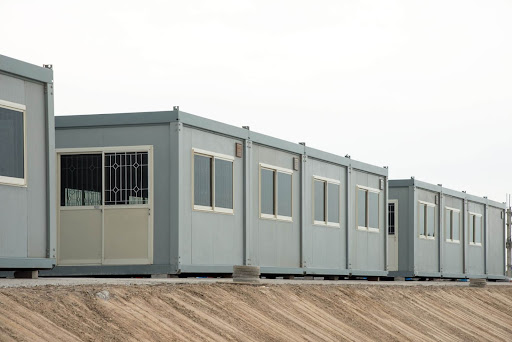Planning permission can be a confusing and intimidating process for those in the construction industry, and the introduction of temporary and portable buildings has only added to the confusion.
As a result, many people need clarification on whether planning permission is necessary for these structures. At PF Modular, we want to ensure our clients have all the information they need to make informed decisions about their projects.
First and foremost, it is essential to understand that portable buildings do require planning permission, just like any other building that will be in place for over 28 days and has a surface area larger than 100m2. However, certain specifications may allow you to avoid needing planning permission.
For example, if the portable building is an extension of existing construction. In that case, if it is shorter than the existing building or directly related to the purpose of the original building, you may not need planning permission. Additionally, if the portable building is less than 25% of the original in volume, you may also avoid needing permission.
However, it is more likely that you will need planning permission for your portable building, and it is always best to assume you will need it to avoid penalties.
Factors that may require planning permission include
- The materials used and how they affect the external appearance of the building
- If the portable building exceeds 25% of the total area or 25% more than the original building
- If it is close to 5m to the site boundary
- If the land is significantly reduced due to the portable structure, reducing the availability for parking and vehicle manoeuvring.
Many portable building manufacturers provide a complete turnkey service, which means they will handle the application for planning permission for you.
This can help ensure there are no issues with local authorities regarding your portable building project. However, it is essential to note that planning permission takes time and often causes delays in the construction industry, with the process taking anywhere from eight to twelve weeks.
Some businesses choose to go ahead with their project without planning permission, as it is possible to receive retrospective planning permission if you can prove your portable building had an emergency or urgent need. Most genuine cases will get approved by the local authorities without any issues.
However, if you decide to take this route and do not get approved. In that case, you must abandon your project and return the site to its original condition, resulting in a significant loss of time and investment.
If you do decide to go through the planning permission process, there are certain documents you will need to provide. These include five copies of your application forms, a location plan, a site plan, a block plan, signed ownership certificates, an agriculture holdings certificate, a design and access statement, and the correct application fee.
It is worth noting that a portable building is sometimes referred to as a temporary structure in planning terms. However, temporary refers to a structure not designed for long-term use and is likely only to serve a short-term purpose, such as toilets at a festival.
In conclusion, planning permission for portable buildings can be a confusing and daunting process. Still, it is important to understand the requirements and specifications that allow you to avoid needing permission. In addition, many portable building manufacturers provide a complete turnkey service, which can help ensure there are no issues with local authorities.
However, it is important to remember that planning permission takes time and often causes delays in the construction industry. Therefore, if you need clarification about the process, it is always best to assume you will need permission and speak with a professional to ensure your project runs smoothly.
The specialist team at PF Modular can advise you if you need it. Get in touch with PF Modular today if you have any questions or need a quote.





